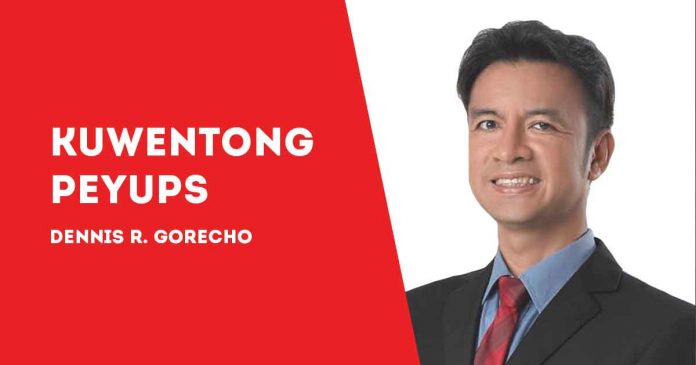
ARTIFICIAL Intelligence (AI) is the discipline concerned with the design and development of automated intelligent systems that perceive, reason out, formulate decisions, and act in an environment to achieve a set of measurable goals.
AI systems embody computational structures that mimic human or animal cognition to process data, learn from experiences, and decide, plan, and act autonomously to satisfy a programmed objective.
AI provides software that can reason on input and explain on output. AI will provide human-like interactions with software and offer decision support for specific tasks.
AI is a technology having unbelievable efficiency that has the ability to dramatically impact economy, education, politics, and lifestyle of people.
ChatGPT is one of the popular AI platforms utilized in online research by students; in creation of social media content, in digital marketing businesses, in business processing, as tool to streamline tasks and automate processes, language translation processing, and software development.
Intellectual property (IP) rights issues associated with AI were discussed during the recent 20th General Assembly and 74th & 75th Council Meeting of the Asian Patent Attorneys Association (APAA) held from November 3 to 7, 2023 at the Marina Bay Sands in Singapore.
In the Special Topic report presented by Philippine group in the Emerging IP Rights committee, Atty. Maria Teresa Trinidad noted that there is no Philippine IP law or case law that lists computer-generated works as original work because AI has no original author.
Under Philippine jurisprudence “a person to be entitled to a copyright must be the original creator of the work.” He must have created it by his own skill, labor and judgment without directly copying or evasively imitating the work of another. Given such an original work would require a human creator.
As characterized, ChatGPT is a natural language processing tool driven by AI technology that allows users to have human-like conversations and much more with the chatbot.
The language model can answer questions and assist users with tasks, such as composing e-mails, essays, and code.
It is trained on vast amounts of information from the Internet, including websites, books, news articles, and more. The language model was fine-tuned using supervised learning as well as reinforcement learning.
ChatGPT is a predictive model and could only be used as a tool that can process large volume of information.
Given the lack of originality, it cannot be considered a source or original work if the output is a product of a generic command without creative choices of the user, for example the product of the command “compose a poem.”
However, if ChatGPT is used as a tool to support the creative process of the creator, and the output reflects the creator’s creativity and choices, then it would seem fair for the creator to claim ownership of the work.
The faculty of the University of the Philippines stressed in a paper that academic requirements must solely be created by the student or group of students rather than AI. But they still encouraged the use of such tools to enhance and facilitate personalized learning, increase student engagement in learning and improve education management.
The APAA is a non-governmental organization dedicated to promoting and enhancing IP protection in the Asian region.
The IP laws aim to protect and secure the exclusive rights of scientists, inventors, artists and other gifted citizens to their intellectual property and creations, particularly when beneficial to the people, for such periods as provided in the law. Nobody else can copy or reuse that creation without the owner’s permission.
IP laws lay down the remedies available to the IP owner in case of a violation of his rights through administrative, civil and criminal sanctions against violators.
Some 40 Filipino intellectual property lawyers attended this year’s Singapore event, along with almost 1,400 delegates from different countries.
The Intellectual Property Association of the Philippines (IPAP) was founded on March 31, 1977 with the aim of professionalizing the steadily growing practice of IP law in the Philippines.
IPAP is the sole Philippine national group recognized by the APAA, the Asean Intellectual Property Association, and the Association Internationale pour la Protection dela Propriete Industrielle.
The Philippines will be the venue of the APAA council meeting next year at the Conrad hotel and SMX Convention Center in Pasay City, Metro Manila from November 18 to 21, 2024.
The Philippines hosted the APAA council meetings in 1990 (Manila Hotel), 2000 (Cebu), and 2011 (Shangri-La Makati).
***
“Peyups” is the moniker of University of the Philippines. Atty. Dennis R. Gorecho heads the seafarers’ division of the Sapalo Velez Bundang Bulilan law offices. For comments, e-mail info@sapalovelez.com, or call 09175025808 or 09088665786./PN



